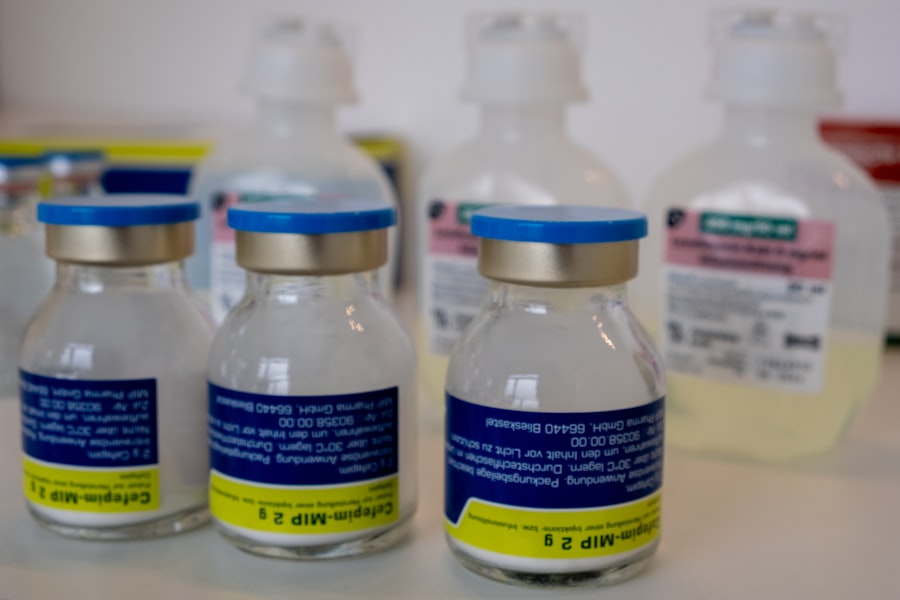Clinical trials serve as the cornerstone of medical research, providing the necessary framework to evaluate the safety and efficacy of new treatments, drugs, and medical devices. These meticulously designed studies are essential for translating scientific discoveries into tangible health benefits for patients. By rigorously testing hypotheses in controlled environments, clinical trials help to establish whether a new intervention is effective and safe for human use.
This process not only enhances our understanding of diseases but also informs clinical practice and public health policies. The significance of clinical trials extends beyond mere drug approval; they are pivotal in identifying optimal dosages, understanding side effects, and determining the long-term impacts of treatments. For instance, the development of life-saving medications such as antiretrovirals for HIV/AIDS and novel cancer therapies has been heavily reliant on the insights gained from clinical trials.
These studies often involve diverse populations, ensuring that findings are applicable across different demographics, which is crucial for addressing health disparities. As such, clinical trials are not just a regulatory requirement; they are a vital component of the scientific method that drives innovation in healthcare.
Key Takeaways
- Clinical trials are essential for advancing medical research and developing new treatments.
- Parexel plays a key role in managing and conducting clinical trials globally.
- Clinical trials significantly impact drug development by ensuring safety and efficacy.
- Patient safety is a top priority for Parexel throughout the clinical trial process.
- Participating in Parexel clinical trials offers patients access to cutting-edge treatments and expert care.
The Role of Parexel in Conducting Clinical Trials
Parexel International Corporation stands out as a leading global provider of biopharmaceutical services, playing a critical role in the execution of clinical trials. With a comprehensive suite of services that spans from early-phase development to post-market studies, Parexel supports pharmaceutical and biotechnology companies in navigating the complex landscape of drug development. Their expertise encompasses regulatory consulting, clinical trial management, data analytics, and patient recruitment, making them an invaluable partner in the quest to bring new therapies to market.
One of the key strengths of Parexel lies in its extensive experience and global reach. Operating in over 50 countries, Parexel has access to a vast network of clinical sites and patient populations, which is essential for conducting multi-national trials. This geographical diversity not only accelerates patient recruitment but also enhances the generalizability of trial results.
Furthermore, Parexel employs advanced technologies and innovative methodologies to streamline trial processes, reduce costs, and improve data quality. Their commitment to operational excellence ensures that clinical trials are conducted efficiently while adhering to the highest ethical standards.
The Impact of Clinical Trials on Drug Development

The impact of clinical trials on drug development cannot be overstated; they are integral to the entire lifecycle of a pharmaceutical product. From initial concept to market launch, clinical trials provide critical data that informs decision-making at every stage. The process typically begins with preclinical studies, which lay the groundwork for human testing by assessing safety and biological activity in laboratory settings.
Once a promising candidate emerges, it enters clinical trials, which are divided into phases—Phase I focuses on safety and dosage, Phase II evaluates efficacy, and Phase III confirms effectiveness in larger populations. The outcomes of these trials directly influence regulatory approvals from agencies such as the U.S. Food and Drug Administration (FDA) or the European Medicines Agency (EMA).
A successful Phase III trial can lead to a new drug application (NDA), while failures can halt development altogether. For example, the withdrawal of certain drugs from the market due to unforeseen adverse effects highlights the importance of thorough clinical testing. Moreover, clinical trials contribute to the body of scientific knowledge by publishing findings that can guide future research and inform treatment guidelines.
How Parexel Ensures Patient Safety in Clinical Trials
| Metric | Description | Example/Value |
|---|---|---|
| Adverse Event Reporting Rate | Percentage of adverse events reported within the required timeframe | 100% reported within 24 hours |
| Patient Monitoring Frequency | Number of patient safety assessments conducted per trial phase | Weekly during Phase I and II, bi-weekly during Phase III |
| Protocol Compliance Rate | Percentage of clinical sites adhering strictly to safety protocols | 98% |
| Training Completion Rate | Percentage of clinical staff completing patient safety training | 100% |
| Data Monitoring Committee Reviews | Frequency of independent safety data reviews per trial | Monthly reviews |
| Patient Safety Incident Resolution Time | Average time taken to resolve patient safety incidents | Less than 48 hours |
| Risk Management Plan Implementation | Percentage of trials with active risk management plans | 100% |
Patient safety is paramount in clinical trials, and Parexel employs a multifaceted approach to ensure that participants are protected throughout the research process. First and foremost, all clinical trials conducted by Parexel adhere to strict regulatory guidelines and ethical standards set forth by governing bodies such as the FDA and the Declaration of Helsinki. This includes obtaining informed consent from participants, ensuring they fully understand the risks and benefits associated with their involvement in a trial.
Additionally, Parexel implements robust monitoring systems to track patient safety during trials. This includes regular assessments by independent data monitoring committees (DMCs) that evaluate trial data for any signs of adverse events or safety concerns. If any issues arise, these committees have the authority to recommend modifications to the trial protocol or even halt the study if necessary.
Furthermore, Parexel emphasizes training for investigators and site staff on best practices for patient care and safety monitoring, fostering an environment where participant welfare is prioritized.
The Process of Enrolling in a Parexel Clinical Trial
Enrolling in a Parexel clinical trial involves several steps designed to ensure that potential participants are well-informed and suitable for the study. Initially, individuals interested in participating can find information about ongoing trials through various channels, including clinical trial registries, healthcare providers, or directly through Parexel’s website. Each trial listing provides details about eligibility criteria, study objectives, and locations where the trial is being conducted.
Once a potential participant identifies a trial of interest, they undergo a screening process that typically includes a thorough medical history review and physical examination. This assessment helps determine whether they meet the specific inclusion and exclusion criteria established for the trial. If eligible, participants are then provided with comprehensive information about the study protocol, including potential risks and benefits.
After giving informed consent, they officially enroll in the trial and begin their participation under close supervision by qualified medical professionals.
The Benefits of Participating in Parexel Clinical Trials for Patients

Participating in Parexel clinical trials offers numerous benefits for patients beyond access to cutting-edge treatments. One significant advantage is the opportunity to receive care from leading experts in their respective fields. Participants often benefit from close monitoring and personalized attention throughout the trial process, which can lead to improved health outcomes compared to standard care practices.
Moreover, patients involved in clinical trials contribute to advancing medical knowledge that may benefit future generations. By participating, they play an active role in shaping the future of healthcare and potentially helping others with similar conditions. Additionally, many trials provide participants with access to new therapies before they become widely available on the market, offering hope for those with limited treatment options.
Financial incentives may also be available; some trials cover travel expenses or provide compensation for time spent participating in study-related activities.
The Future of Medical Research and the Role of Parexel
As medical research continues to evolve rapidly with advancements in technology and data analytics, Parexel is poised to play a pivotal role in shaping its future landscape. The integration of artificial intelligence (AI) and machine learning into clinical trial design and execution is transforming how studies are conducted. These technologies enable more efficient patient recruitment strategies by analyzing vast datasets to identify suitable candidates quickly.
Furthermore, Parexel is at the forefront of adopting decentralized clinical trial models that leverage telemedicine and digital health tools. This approach allows for greater flexibility in how trials are conducted, making participation more accessible for patients who may face barriers such as geographical limitations or mobility issues. By embracing these innovations, Parexel not only enhances operational efficiency but also improves patient engagement and retention throughout the trial process.
The Ethical Considerations of Conducting Clinical Trials
Conducting clinical trials raises several ethical considerations that must be carefully navigated to protect participants’ rights and welfare. Informed consent is one of the most critical ethical principles; participants must be fully aware of what their involvement entails, including potential risks and benefits. This requires clear communication from researchers about study protocols and any uncertainties surrounding experimental treatments.
Another ethical concern involves ensuring equitable access to clinical trials across diverse populations. Historically, certain demographic groups have been underrepresented in clinical research, leading to gaps in knowledge about how treatments affect different populations. To address this issue, organizations like Parexel actively seek to recruit diverse participants by implementing targeted outreach strategies that engage communities often overlooked in research efforts.
This commitment not only enhances the validity of trial results but also promotes social justice within healthcare research. In summary, while clinical trials are essential for advancing medical knowledge and developing new therapies, they must be conducted with a strong ethical framework that prioritizes participant safety and inclusivity. As Parexel continues to lead in this field, its dedication to ethical practices will remain crucial in fostering trust between researchers and participants while driving innovation in healthcare.




